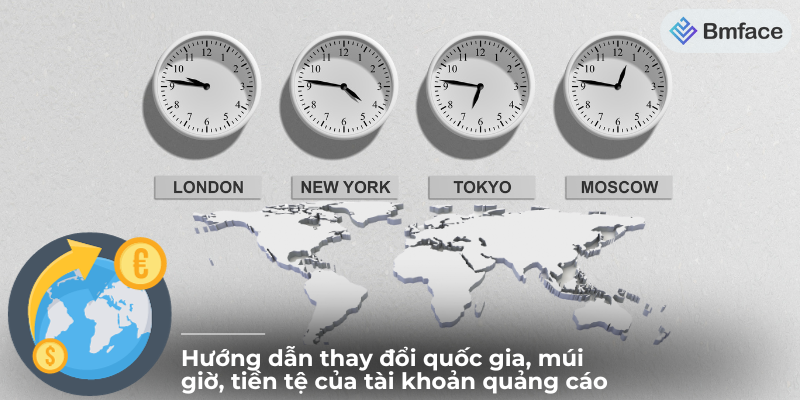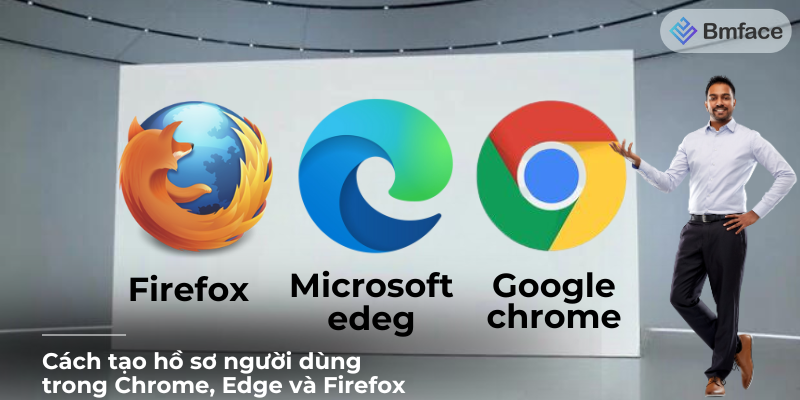Smart contracts are revolutionizing the way agreements are made and executed. Leveraging blockchain technology, smart contracts automate and enforce contract terms without the need for intermediaries. This article by BMface explores the benefits, applications and future of smart contracts.
What Are Smart Contracts?

Definition
Smart Contracts Overview:
- Self-Executing Agreements: Smart contracts are digital contracts that automatically execute the terms of an agreement when certain conditions are met.
- Code-Based Terms: The terms of the contract are directly written into lines of code, making the process automated and reducing the need for intermediaries.
- Decentralized: These contracts operate on decentralized blockchain networks, ensuring they are not controlled by any single entity.
How They Work
Blockchain Integration:
- Immutable Code: Once a smart contract is deployed on the blockchain, its code cannot be altered. This ensures the contract’s terms remain consistent and tamper-proof.
- Automated Execution: Smart contracts automatically execute transactions or actions when predefined conditions encoded in the contract are satisfied. For example, a smart contract for a crowdfunding campaign might release funds to the project creator only if a certain amount of money is raised by a specific date.
- Transparency and Security: All actions and transactions performed by the smart contract are recorded on the blockchain, providing a transparent and auditable trail. This transparency builds trust among parties and enhances security.
Key Components:
- Conditions: These are the specific criteria written into the code that must be met for the contract to execute. Conditions can range from simple requirements (like a specific date) to more complex scenarios (like the completion of multiple steps).
- Execution Environment: The blockchain network (such as Ethereum) provides the environment where the smart contract code is executed. The network's nodes validate and record the transactions.
- Decentralized Ledger: The blockchain acts as a decentralized ledger that records every action taken by the smart contract. This ledger is distributed across multiple nodes, making it resistant to tampering and fraud.
Practical Examples:
- Financial Transactions: Smart contracts can be used for various financial applications, such as automatically executing trades, managing escrow accounts, or handling insurance payouts.
- Supply Chain Management: In supply chains, smart contracts can automate processes like tracking goods, verifying authenticity, and ensuring compliance with contractual terms.
- Real Estate: Smart contracts can facilitate real estate transactions by automating tasks such as verifying ownership, transferring deeds, and releasing funds once conditions like inspection approvals are met.
Benefits of Smart Contracts

Efficiency and Speed
Automated Processes:
- Reduced Delays: By eliminating the need for manual processing and intermediaries, smart contracts can significantly speed up transactions and contract executions.
- 24/7 Operation: Smart contracts operate continuously without the need for business hours, enabling transactions and processes to occur at any time.
Cost Savings
Lower Transaction Costs:
- No Intermediaries: Smart contracts reduce the need for intermediaries (such as lawyers, brokers, or notaries), thereby cutting down on associated fees and costs.
- Streamlined Processes: Automation reduces administrative overhead and operational costs, leading to overall cost efficiency.
Trust and Security
Enhanced Trust:
- Transparency: The immutable and transparent nature of blockchain ensures that all parties can trust the contract’s terms and execution without fear of tampering or fraud.
- Security: The decentralized and cryptographic nature of blockchain provides robust security against hacking and unauthorized alterations.
Smart contracts represent a significant advancement in the way agreements are executed and enforced. By leveraging blockchain technology, they offer automated, transparent, and secure solutions for a wide range of applications. From financial transactions to supply chain management, smart contracts have the potential to revolutionize traditional processes, providing efficiency, cost savings, and enhanced trust. Understanding their functionality and benefits is crucial for businesses and individuals looking to harness the power of blockchain technology.
Benefits of Smart Contracts
Automation
Streamlined Processes:
- Elimination of Manual Intervention: Smart contracts automatically execute the terms of an agreement, significantly reducing the need for human involvement. This automation minimizes the risk of human error, ensuring that contract terms are consistently and accurately applied.
- Increased Speed: Automated execution speeds up processes that would otherwise require time-consuming manual actions. For instance, in financial transactions, smart contracts can immediately release payments upon the fulfillment of predefined conditions, such as the delivery of goods or completion of services.
Cost Efficiency
Reduction of Transaction Costs:
- No Intermediaries: By removing the need for intermediaries such as lawyers, brokers, and notaries, smart contracts reduce associated fees. This makes them a cost-effective solution for businesses and individuals alike.
- Operational Savings: The efficiency gained from automation and reduced administrative overhead translates into lower operational costs. This is particularly beneficial in industries where transaction volumes are high, such as finance and supply chain management.
Transparency and Trust
Fostering Trust Among Parties:
- Visibility of Contract Terms: All parties involved in a smart contract can view the terms and conditions encoded in the contract. This transparency helps to eliminate misunderstandings and disputes, as everyone has access to the same information.
- Traceable Execution: The blockchain records all actions and transactions performed by the smart contract, providing an auditable trail. This traceability builds trust among participants, as they can verify that the contract has been executed according to the agreed-upon terms.
Security
Enhanced Protection Against Fraud and Tampering:
- Encryption: Smart contracts are encrypted, ensuring that the data and execution logic are secure from unauthorized access. This encryption protects sensitive information and contract terms from being compromised.
- Decentralization: The decentralized nature of blockchain means that the contract’s execution is not controlled by any single entity. This decentralization makes it difficult for any one party to alter the contract or manipulate its outcomes, providing a robust defense against tampering and fraud.
- Immutable Records: Once a smart contract is deployed, its code and transaction history are immutable, meaning they cannot be changed or deleted. This immutability further enhances security, as it ensures the contract’s integrity over time.
Smart contracts offer numerous benefits that make them a powerful tool for modern business operations. By automating processes, reducing costs, enhancing transparency, and providing robust security, smart contracts address many of the inefficiencies and risks associated with traditional contract execution. As blockchain technology continues to evolve, the adoption of smart contracts is likely to increase, driving innovation and efficiency across various industries. Understanding these benefits is essential for leveraging the full potential of smart contracts in your business strategies.
Applications of Smart Contracts
Financial Services
Automation of Financial Processes:
- Loan Agreements: Smart contracts can automate the loan agreement process, from approval to repayment. The terms of the loan, such as interest rates and payment schedules, are encoded into the contract, which automatically executes transactions based on these terms. This reduces administrative costs and speeds up the loan processing time.
- Insurance Claims: In the insurance industry, smart contracts can streamline the claims process by automatically verifying claims and processing payouts. This reduces the time and cost associated with manual claims processing and ensures that claims are handled fairly and transparently.
- Trading: Smart contracts can facilitate the automatic execution of trades based on predefined criteria. This is particularly useful in the stock and cryptocurrency markets, where trades can be executed instantaneously without the need for a broker.
Supply Chain Management
Enhancing Transparency and Efficiency:
- Tracking Movement of Goods: Smart contracts can record each step of a product's journey through the supply chain on the blockchain. This provides real-time visibility into the location and status of goods, reducing delays and improving efficiency.
- Verifying Authenticity: Smart contracts can verify the authenticity of products by tracking their origin and ensuring they meet regulatory standards. This is especially important for high-value or regulated items such as pharmaceuticals and luxury goods.
- Ensuring Timely Payments: Smart contracts can automate payments upon the fulfillment of contractual obligations, such as the delivery of goods. This ensures that suppliers are paid promptly, improving cash flow and reducing the risk of payment disputes.
Real Estate
Streamlining Property Transactions:
- Property Sales: Smart contracts can automate the entire property sales process, from listing to closing. The contract can handle tasks such as title transfers, escrow management, and payment processing, reducing the need for intermediaries and speeding up transactions.
- Rental Agreements: In the rental market, smart contracts can automate lease agreements, including rent payments and maintenance requests. This simplifies property management for landlords and ensures tenants meet their obligations.
- Escrow Management: Smart contracts can manage escrow accounts by holding funds until all conditions of a real estate transaction are met. This provides security for both buyers and sellers, as the funds are only released when the terms of the sale are satisfied.
Healthcare
Improving Security and Compliance:
- Managing Patient Records: Smart contracts can securely store and manage patient records on the blockchain. This ensures that only authorized personnel can access sensitive information, improving privacy and data security.
- Automating Insurance Claims: In healthcare, smart contracts can automate the processing of insurance claims. The contract can verify the validity of claims against policy terms and automatically disburse payments, reducing administrative overhead and speeding up claim settlements.
- Ensuring Compliance: Smart contracts can ensure compliance with healthcare regulations by automatically enforcing regulatory requirements. This reduces the risk of non-compliance and helps healthcare providers meet their legal obligations.
Smart contracts have the potential to revolutionize various industries by automating processes, reducing costs, and enhancing transparency and security. Their applications in financial services, supply chain management, real estate, and healthcare demonstrate their versatility and effectiveness. By leveraging smart contracts, businesses can streamline operations, improve efficiency, and deliver better services to their customers. Understanding these applications is crucial for businesses looking to innovate and stay competitive in an increasingly digital world.
Challenges and Limitations
Legal Recognition
Jurisdictional Variability:
- Uncertainty in Enforceability: The legal status of smart contracts varies significantly across different jurisdictions. While some regions recognize them as legally binding, others have yet to establish clear guidelines, leading to uncertainty about their enforceability.
- Regulatory Framework: The lack of a uniform regulatory framework complicates the use of smart contracts across borders. Businesses must navigate a complex legal landscape to ensure compliance with local laws.
Technical Complexity
Specialized Knowledge Required:
- Blockchain Technology: Developing smart contracts requires a deep understanding of blockchain technology, which can be complex and challenging for those without a technical background.
- Programming Skills: Writing smart contracts involves coding in specific programming languages such as Solidity for Ethereum. This requires expertise in not only the language but also in secure coding practices to prevent vulnerabilities.
- Maintenance and Auditing: Ensuring the proper functioning of smart contracts involves regular maintenance and auditing. Any bugs or vulnerabilities need to be identified and fixed, which requires ongoing technical support and expertise.
Scalability
Performance Under High Transaction Volumes:
- Blockchain Limitations: Many blockchain networks, including Ethereum, face scalability issues that can hinder the performance of smart contracts. High transaction volumes can lead to network congestion, resulting in slower processing times and higher transaction fees.
- Throughput Constraints: The throughput of blockchain networks is limited by their design, which prioritizes decentralization and security over speed. This can affect the ability of smart contracts to handle large-scale applications efficiently.
- Layer 2 Solutions: Efforts to improve scalability often involve Layer 2 solutions, such as sidechains and state channels, which add complexity to the implementation and require additional infrastructure and development.
While smart contracts offer significant benefits in terms of automation, cost efficiency, transparency, and security, they also face several challenges and limitations. Legal recognition varies by jurisdiction, adding uncertainty to their enforceability. The technical complexity of writing and deploying smart contracts requires specialized knowledge and skills. Additionally, scalability issues on blockchain networks can impact the performance of smart contracts, particularly during high transaction volumes.
Addressing these challenges will require continued advancements in technology, the development of robust legal frameworks, and efforts to improve the scalability of blockchain networks. As these issues are resolved, the potential for smart contracts to revolutionize various industries will become even more significant.
The Future of Smart Contracts
Integration with IoT
Automated Processes:
- Seamless Connectivity: Integrating smart contracts with IoT devices can automate complex workflows and processes. For instance, a smart contract can trigger maintenance alerts for machinery based on IoT sensor data, ensuring timely repairs and minimizing downtime.
- Enhanced Efficiency: By leveraging real-time data from IoT devices, smart contracts can execute actions automatically, enhancing operational efficiency. This integration can be particularly beneficial in industries such as manufacturing, logistics, and agriculture.
Adoption in Various Industries
Widespread Application:
- Financial Services: The financial industry is likely to see increased adoption of smart contracts for automating transactions, managing financial agreements, and reducing the need for intermediaries. This can lead to faster and more secure financial operations.
- Healthcare: Smart contracts can be used to manage patient records, automate insurance claims, and ensure compliance with regulations. This can improve patient care and streamline administrative processes.
- Supply Chain: In supply chain management, smart contracts can enhance transparency and efficiency by automating tracking and verification processes. This can reduce fraud and improve the reliability of supply chains.
- Real Estate: The real estate sector can benefit from smart contracts by automating property transactions, managing rental agreements, and handling escrow accounts. This can simplify the buying and selling process and reduce transaction costs.
Regulatory Frameworks
Legal and Security Enhancements:
- Government Initiatives: Governments and regulatory bodies worldwide are working on developing comprehensive frameworks to address the legal and security aspects of smart contracts. These initiatives aim to provide clear guidelines for the use and enforcement of smart contracts.
- Standardization Efforts: Efforts to standardize smart contract protocols and practices can help ensure compatibility and interoperability across different blockchain platforms. This can facilitate broader adoption and integration of smart contracts in various industries.
Conclusion
Smart contracts are revolutionizing the way agreements are made and executed, offering significant advantages in terms of automation, cost efficiency, transparency, and security. While challenges such as legal recognition, technical complexity, and scalability remain, ongoing advancements and regulatory efforts are paving the way for broader adoption.
The future of smart contracts looks promising, with potential applications spanning numerous industries. As technology evolves and regulatory frameworks are established, smart contracts will become an integral part of various business processes, driving efficiency and innovation.
By understanding the benefits and challenges, businesses can strategically leverage smart contracts to enhance their operations and stay competitive in an increasingly digital world.
For more insights and updates on effective social media strategies, make sure to follow Bmface and our tutorial blog, where we share the latest and most effective content marketing tips.
Cảm ơn bạn đã theo dõi bài viết. Mua hàng tại Bmface.com để ủng hộ đội ngũ Admin viết thêm nhiều bài viết hay. Xin cảm ơn!
































